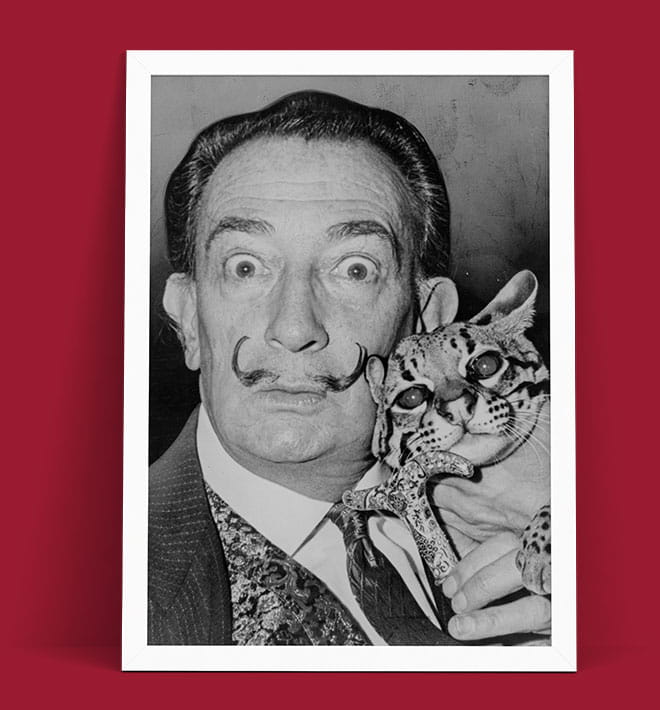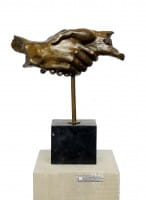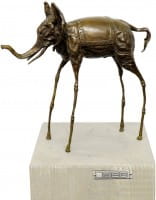Rise to Prominence
In the late 1920s, Dalí became associated with the Surrealist movement, drawing inspiration from Sigmund Freud's psychoanalytic theories. His 1931 painting, The Persistence of Memory, featuring melting clocks in a dreamlike landscape, became an iconic representation of Surrealism. Dalí's collaborations extended beyond painting; he worked with filmmaker Luis Buñuel on the surreal films Un Chien Andalou (1929) and L’Âge d’or (1930), and later with Walt Disney on the animated short Destino, which, though conceptualized in 1946, was completed posthumously in 2003.
Artistic Evolution
Dalí's artistic journey was marked by constant evolution. In the 1940s, he moved to the United States, where he achieved commercial success and expanded his repertoire to include fashion, photography, and product design. By the 1950s, Dalí developed a style he termed "nuclear mysticism," merging religious themes with scientific concepts, as seen in works like Crucifixion (Corpus Hypercubus) (1954).
Personal Life
Dalí's personal life was as unconventional as his art. He had a complex relationship with his muse and wife, Gala, who played a significant role in his life and work. Known for his eccentric behavior, Dalí cultivated a public persona that blurred the lines between art and life, often making headlines with his antics and distinctive appearance.
Legacy
Dalí passed away on January 23, 1989, in his hometown of Figueres, where he is buried in the crypt of the Dalí Theatre-Museum—a museum he designed himself. His influence persists in contemporary art and popular culture, with his works housed in major institutions worldwide. The Dalí Museum in St. Petersburg, Florida, even offers a virtual reality experience, "Dreams of Dalí," allowing visitors to immerse themselves in his surreal landscapes.
Notable Salvador Dalí Artwork
- The Persistence of Memory (1931): Depicts melting clocks in a desolate landscape, symbolizing the fluidity of time.
- The Elephants (1948): Features spindly-legged elephants carrying obelisks, representing weightlessness and strength.
- The Sacrament of the Last Supper (1955): A mystical interpretation of the biblical scene, blending religious imagery with geometric forms.













